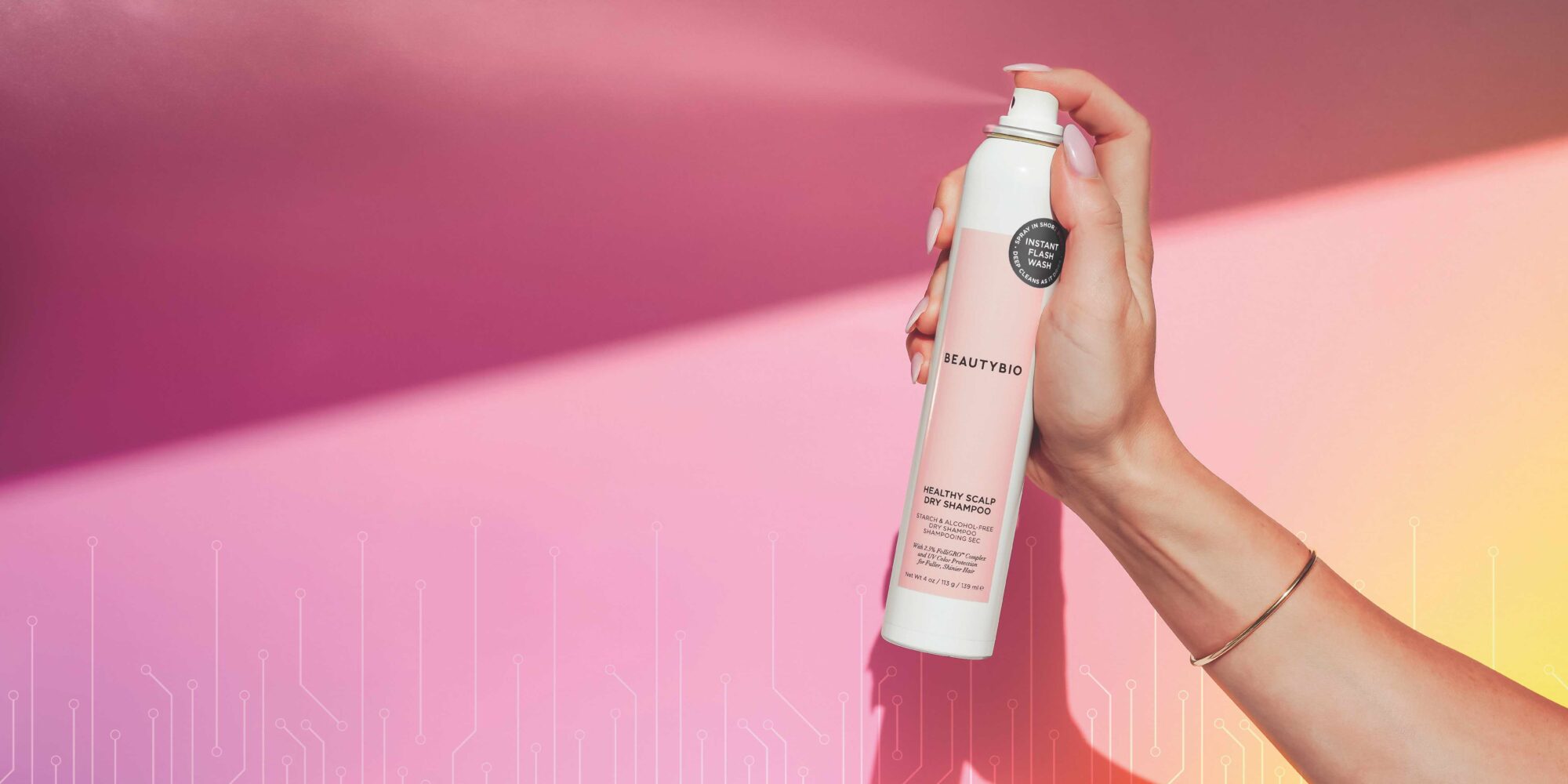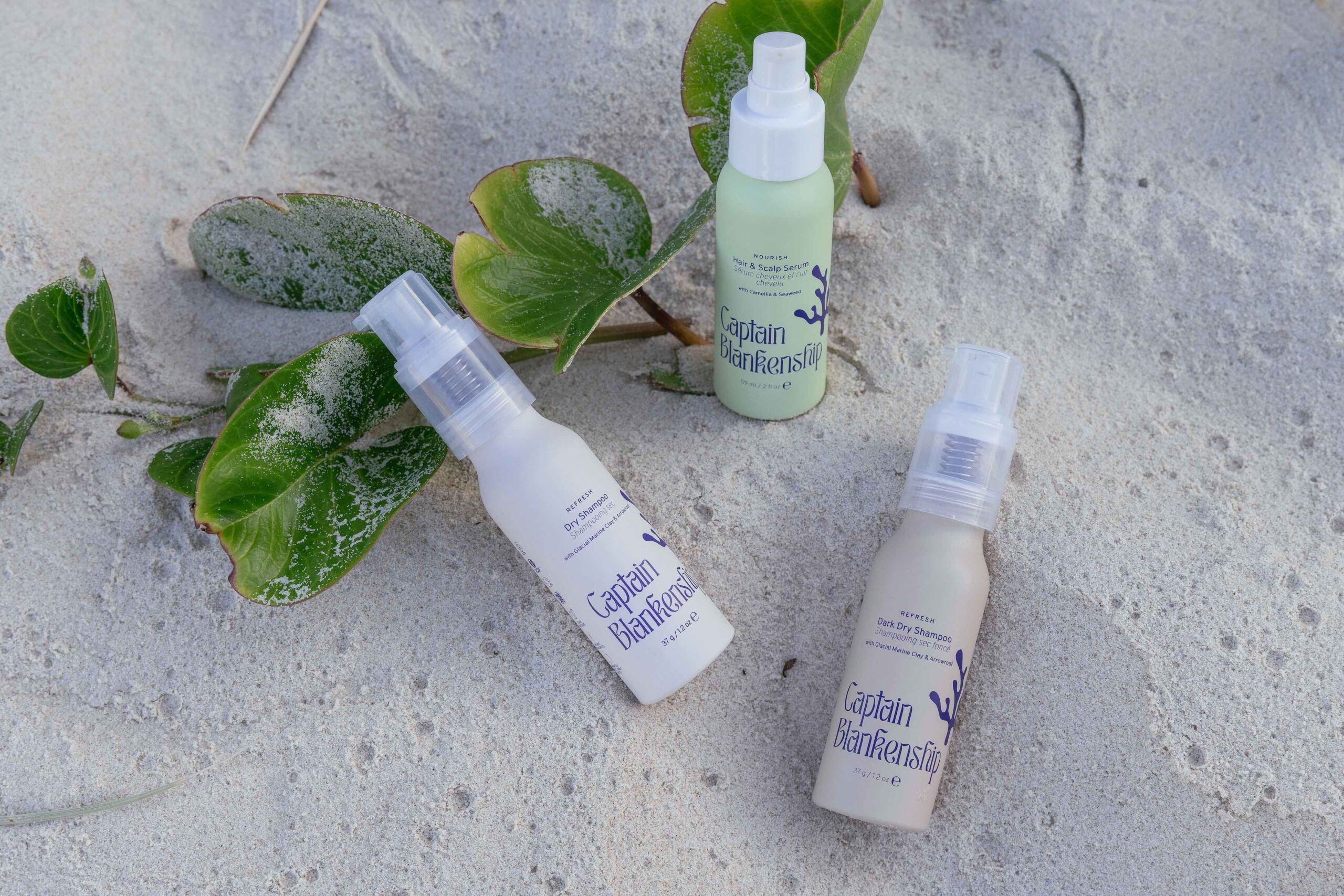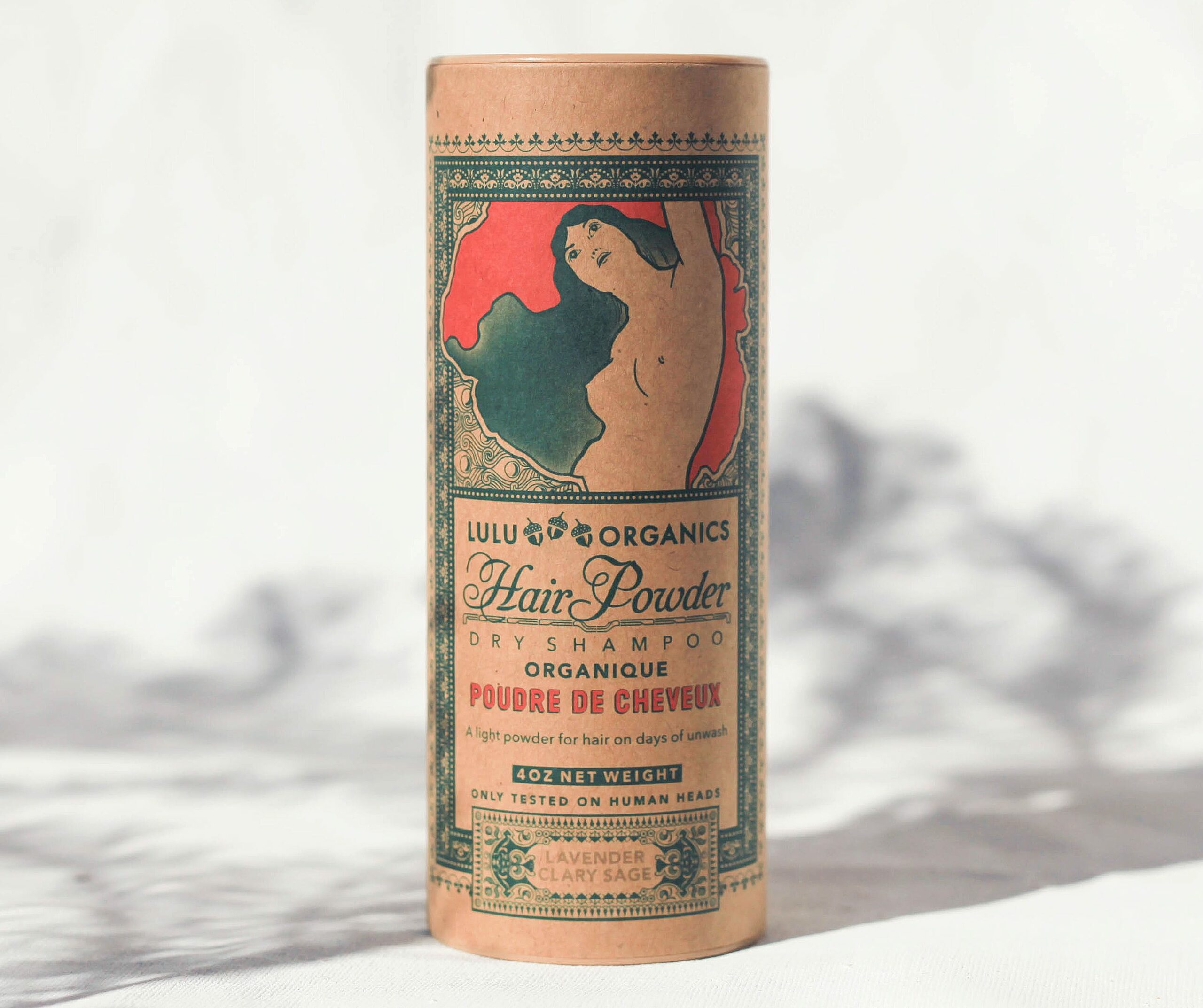
Smaller Brands Selling Dry Shampoo Benefit From Unilever Recalling Dry Shampoos Due To Benzene
Since Unilever voluntarily recalled 19 aerosol dry shampoos from popular brands such as Dove, Tresemmé, Sauve, Nexxus and Bed Head last month due to concerns over the carcinogen benzene, consumers and retailers have sought out dry shampoos from alternative brands.
Following the news, BeautyBio, a skincare device and topical products brand that released Healthy Scalp Dry Shampoo last year, saw its dry shampoo sales jump 28%. Although it’s difficult to tease out the influence of the recall on dry shampoo sales at Captain Blankenship, which recently rebranded, and Lulu Organics, which was running a promotion as the news hit, both have experienced upticks. Dry shampoo is the bestselling product on Captain Blankenship’s website, and its sales have more than doubled of late.
“I think we will see a growing mistrust of aerosol products in the market, which is highly warranted,” says Captain Blankenship founder Jana Blankenship. “I also predict we will see significant growth in non-aerosol dry shampoos and consumers turning to indie brands for safer options. I’m excited and ready to grow the sales of our dry shampoos.”

Jamie O’Banion, CEO and founder of BeautyBio, says, “We anticipate a continued rise in sales of our Healthy Scalp Dry Shampoo as there isn’t another formula on the market that is not only benzene-free, but also starch- and alcohol-free, both ingredients are known to damage both scalp and hair…When a trusted entity recalls multiple products across its portfolio of brands, consumer confidence can be materially challenged. The waterfall effect results in consumers questioning what else they might be using on a day-to-day basis that could have potentially carcinogenic side effects.”
Unilever’s dry shampoo recall is the latest in several benzene-related recalls. In May last year, healthcare lab Valisure revealed it had discovered benzene in Neutrogena sunscreens, prompting parent company Johnson & Johnson to recall the sunscreens and the United States Food and Drug Administration to instruct other brands to test for benzene. Subsequently, sunscreens, deodorants, conditioners and shampoos from at least 15 brands, including Old Spice, Herbal Essence, Banana Boat, Aveeno, Coppertone, Secret, Aussie and Pantene, were recalled.
In the wake of Unilever’s dry shampoo recall, Valisure conducted tests on 34 brands of dry shampoo and identified benzene in 70% of the dry shampoo samples it tested. The ubiquity of benzene in dry shampoos suggests additional recalls could be on the horizon. Personal care brands aren’t putting benzene in their products on purpose, a point underscored by the trade organization Personal Care Products Council in reaction to earlier recalls. How benzene is ending up in personal care products is a bit of mystery.
Chris Cappa, a professor of environmental engineering at University of California at Davis, told The Washington Post that inadequate refinement of butane, a petroleum-derived spray can propellant used in aerosol products, can lead to benzene and could be the source of the benzene contamination in personal care products. People are regularly exposed to benzene in the environment through everyday substances like gasoline, and high levels of benzene over time can affect the nervous system, triggering headaches, dizziness, drowsiness, confusion and unconsciousness, and cause cancers like leukemia and blood disorders. Personal care products aren’t associated with high levels of benzene.
“Retailers are going to be scrambling to find safe options now that aerosols are being pulled from their shelves.”
In its dry shampoo recall announcement on Oct. 18, Unilever states, “Based on an independent health hazard evaluation, daily exposure to benzene in the recalled products at the levels detected in testing would not be expected to cause adverse health consequences. Unilever U.S. is recalling these products out of an abundance of caution. Unilever has received no reports of adverse events to date relating to this recall.”
Brands selling non-aerosol dry shampoos argue aerosol dry shampoos should be taken off the market with the intent of avoiding benzene contamination in dry shampoos. Discussing the dry shampoo recall, Blankenship says, “I truly hope that it means we can consider ending the sale of aerosol dry shampoo products as they all pose a risk for human, environmental and aquatic safety. We are just going to experience more and more recalls. Instead of continuing to cause potential harm not only to users, but to their families and the planet, we should get ahead and just stop the sale of these hazardous products.”
Once Unilever’s dry shampoo recall was publicized, Captain Blankenship, Lulu Organics and BeautyBio went to work communicating about the benzene issue and broadcasting that they offer dry shampoos not involved in it. BeautyBio integrated and optimized SEO terms on its product landing pages highlighting that Healthy Scalp Dry Shampoo is free of benzene. Lulu Organics touched on the recall on its social media channels and via email. “We even had customers write back saying thank you and that our email was the only reason they knew about it,” says Linda “Lulu” Aldredge, founder of Lulu Organics.
Retailers have taken notice of the dry shampoo recall. Aldredge reports Lulu Organics has notched an increase in retail orders. In January, she informed Beauty Independent the brand was in 300 accounts spanning boutiques and hair salons. “I had a lot of existing retailers of mine also address the recall on their social media pages, which I’m guessing drove their sales as well,” says Aldredge. Blankenship chimes in, “I think retailers are going to be scrambling to find safe options now that aerosols are being pulled from their shelves.”

Still, the entrepreneurs behind emerging dry shampoo players aren’t convinced most consumers are aware that Unilever recalled dry shampoos with benzene in them. Blankenship says, “Many aerosol dry shampoos promote themselves as ‘clean,’ and customers don’t understand what goes into propellants in aerosol containers. If they did know what was in them, I believe most people would stop buying them. I believe there needs to be more transparency about ingredients with all personal care products.”
Aldredge says, “In general, I don’t think the average consumer looks that closely at their ingredients lists. Those products recalled are pretty standard over-the-counter dry shampoos, and I would think those consumers care more about price.” Lulu Organics’ signature Hair Powder is $28. Unilever’s dry shampoos are far cheaper. For example, on the sites of mass-market retailers, Dove’s dry shampoos are priced from roughly $4 to $8.
Aldredge isn’t optimistic Unilever’s dry shampoo recall will permanently shift the dry shampoo landscape. She says, “I would love for it to have a lasting impact, but, like everything, I think it will die down and be forgotten about.”
Jamie Chung-Hin, CEO of Love Hair, a natural hair care brand selling Volumizing Dry Shampoo, is comparatively sanguine. She says, “We hope that more people become more conscious in the hair products they use by educating themselves on the ingredients that are in their products. We believe in living a conscious lifestyle, and we hope that gets translated in all parts of life.”





Leave a Reply
You must be logged in to post a comment.